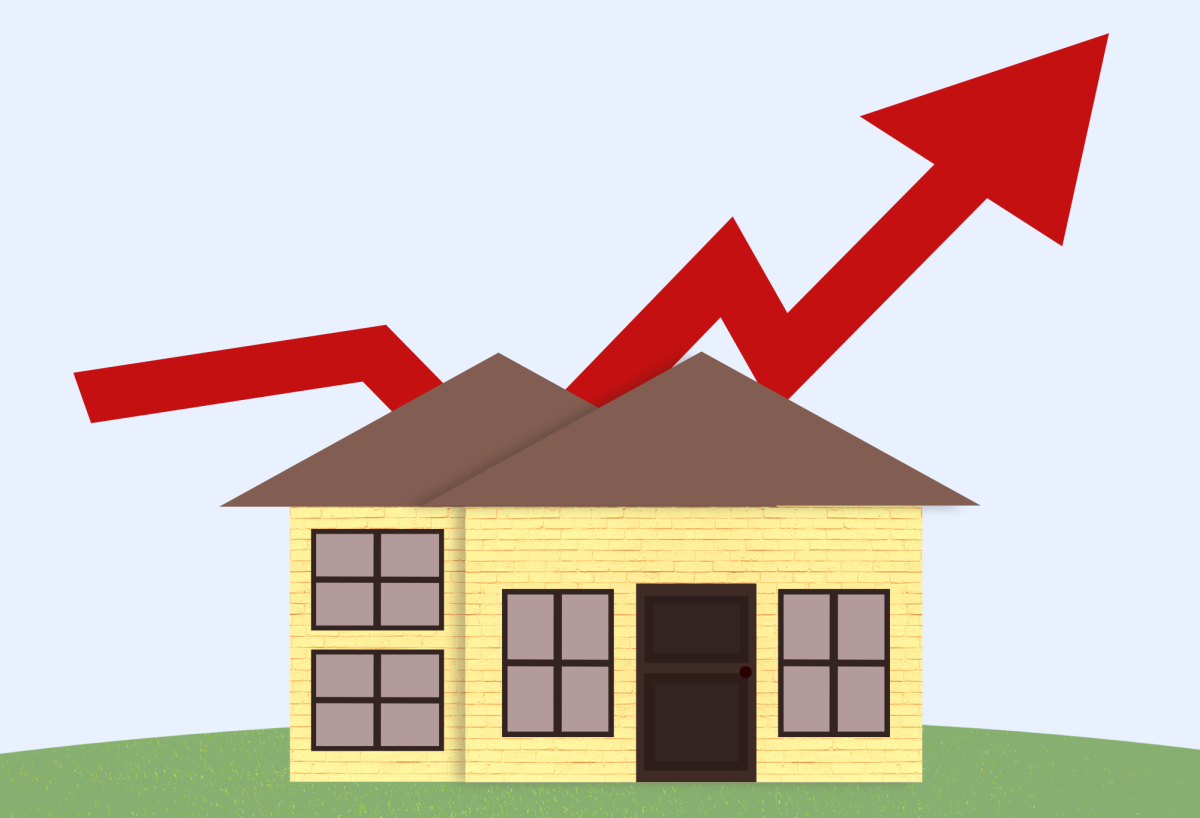
Illustration by Akhila Nadimpalli
I always dreamed of what my future house would look like.
I wanted an old Victorian-style home with the original stairs and woodwork. I wanted a grand dining room to host guests and a round corner breakfast nook where I could work in the mornings.
And to quote Rachel McAdams and her iconic role in The Notebook, “I want a big ‘ole porch that wraps around the entire house.”
However, I now know I’ll never get to see that dream come true.
I, like most of Gen Z, have come to the same understanding that I most likely will never own a home.
A Redfin survey conducted in September found that one in 10 Gen Z respondents did not see themselves owning a home in the future, with most citing affordability as the number one cause.
The housing market has been on a constant roller coaster of price ranges in recent years, and now it looks like the prices are only going to keep climbing.
Housing prices have seen a 48.55% increase in the last 10 years.
Along with the increasing prices of houses, Gen Z is also dealing with other financial hurdles when it comes to potential home ownership.
A 2022 study from FreddieMac identified five such hurdles among respondents.
Saving for a down payment was the most popular issue among 39% of the 1,749 participants.
Not having a sufficient credit history was the next hurdle identified by 27% of respondents, followed by unstable job situations, student loan debt and credit card debt.
The constant financial burdens mixed with the decreasing affordability of homes is destroying the dream of becoming a homeowner — a pillar of the so-called “American Dream.”
Renting, which was once a safe haven for those not quite ready to buy a home, is also becoming a strenuous feat for most of Gen Z.
Since 1999, rent has increased by around 135% with the average income only increasing by 77% in that same amount of time.
To find out exactly how the renting market is affecting Gen Z, The New York Times interviewed several renters.
Savannah Scott, a 23-year-old in Nevada, told the outlet, “I end up buying less groceries — I can’t be buying fun little snacks, it’s just like brown rice and beans. I was on food stamps for a while. I only drive maybe once a week because I don’t want to have to pay for the gas.”
The New York Times also broke down how much of each renter’s income went toward their rent.
Scott uses 75% of her income for rent.
If residents have to adjust their grocery lists to meet the grueling rent, it doesn’t give potential tenants a warm fuzzy feeling when considering signing a lease.
Some people don’t see the housing market as an issue.
Jacob Channel, a senior economist for the online loan marketplace LoaningTree, spoke with The New York Times about the outlook on Gen Z homeowners.
“Even though you might hear a lot of doom and gloom and people might say, ‘Well, Gen Z-ers will never be able to buy a house,’ they said the same thing about millennials, and millennials are the largest group of home buyers in America,” Channel told The New York Times.
While I do appreciate the positive forecast, being a member of the affected generation forces me to be a realist.
The truth is, even if the buying prices of houses were to reach a low point in the near future, I am still not sure how I would pay for the constant maintenance that comes with owning a home.
For now, I’m just going to push my Victorian-style home to the back of my mind and look for affordable alternatives.
Although, a small part of me will still dream of it.